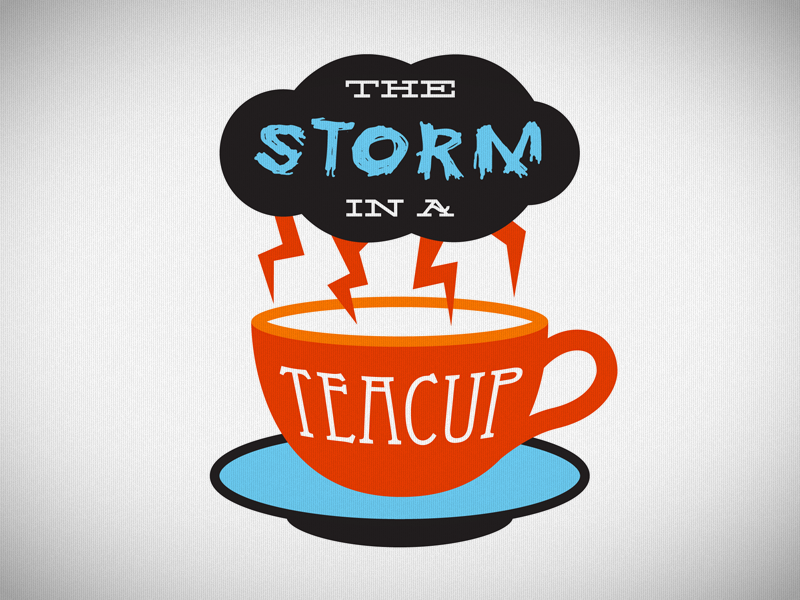


Having established the origin of the idiom, we will dive into its meaning. Regardless of the variation of the idiomatic expression you use, the meanings remain the same and they convey the same message. Other variations of the idiom are "a tempest in a glass of water," "a tempest in a teacup," and "a storm in a wash-hand basin." The Hungarians have a different idiom with the same meaning, "Vihar egy pohár vízben" meaning "a tempest in a potty." The Spanish make use of the phrase "Una tormenta en un vaso de agua" translated as "a storm in a glass of water." Other languages have a similar idiom, the French say "une tempete dans un verre d'eau" which means "a storm in a glass of water," the Dutch say "een storm in een glas water" which also means "a storm in a glass of water." The version used by the Americans also appears to be of Scottish origin rather than American as the first time it was used happened to be in 1825, in a Scottish magazine known as the Edinburgh Monthly Magazine. But, the idiom "A Storm In A Teacup" originated from Scotland in the early 1800s. Then, later in 1678, the Duke of Ormond, the first English man to use the expression made reference to the phrase in a letter to the Arlington' Earl, and what he wrote was "Our skirmish … is but a storm in a cream bowl."Īnother nobleman referred to Cicero's phrase, though, he used a new version in an article for The Gentleman's Magazine in 1830.Īlthough, the British are not fond of the American version of the idiom, which is "A Tempest In A Teapot," both are used interchangeably presently. In one of the writings of Cicero, the De Legibus in 52 B.C.E, he used the phrase "Excitabat Fluctus In Simpulo," when translated into English, it means "Stirring Up Waves Or Billows In A Ladle." An interesting fact is that teas and teacups did not exist at that time. There seem to be a lot of controversies that surround the origin of this idiom, but there are some widely accepted facts about it. The origin of a thing usually tells us a lot about that thing, so taking a stroll down memory lane to when the idiomatic expression "A Storm In A Teacup" was first used, we will find a lot of interesting facts about this idiom. There is nothing in our universe without an origin, words, idioms, and proverbs are included. You are guaranteed a comprehensive knowledge of this idiom in this article.īefore we go into the details of what the idiom means, we will take a look at the origin of the idiom. We hope to avoid obscurities and bring in clarity on what the idiom "A Storm In A Teacup" means and how you can use it correctly in a sentence. The message that is to be conveyed is not passed across because it is unclear to the recipient. And when there is no understanding of a particular word, phrase, or sentence, obscurities is what you find. There are lots of misconceptions and complications with the use of idiomatic expressions in sentences and speeches.
#Tiny storm in a teacup how to
Are you wondering what this is all about? In this article, we will tell you all about how to use it when writing.

We have given you a preamble of what you are to expect from this article on what the idiomatic expression "A Storm In A Teacup" means. We use this idiom when a person is very annoyed or upset over something of little importance. "A Storm In A Teacup" is an idiomatic expression that is used to describe a situation whereby there is an excessive or unreasonable outburst of displeasure, concern, or anger over a trivial or minor issue.

Are you one of those people who avoid using idiomatic expressions because they do not know the meaning? You have nothing to worry about, the question What Does the Idiom "A Storm In A Teacup" Mean, will be answered extensively. Lots of people find the use of idiomatic expressions confusing, especially when they come across an idiom they are unfamiliar with.


 0 kommentar(er)
0 kommentar(er)
